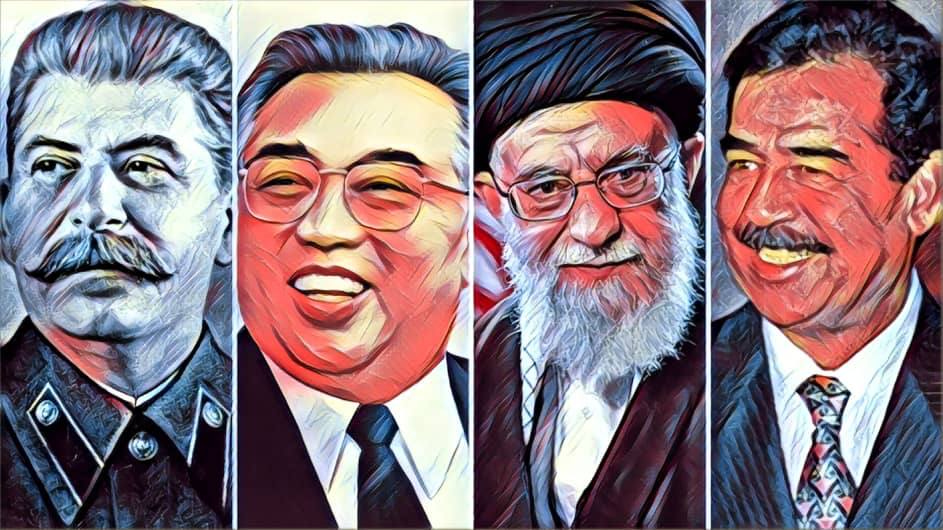Why do dictators interfere in everything?
Why do dictators interfere in everything? According to Iran Gate, the interference of dictators in people’s lifestyles, including how they dress, eat, live, and entertain, is not limited to dictators ruling over theocratic systems. From North Korea and the Soviet Union to the Islamic Republic, all have tried to impose their preferred lifestyle model on citizens.
The issue of mandatory hijab and the strict measures imposed by Ebrahim Raisi’s government remind one of the book ‘The Power of the Powerless’ by Václav Havel. Dictators have a strong and excessive tendency to meddle in all aspects of the lives of the people they govern. If these dictators represent a specific ideology, this tendency is intensified, and they develop an insatiable desire to interfere in all affairs of the country and even in the private lives of citizens.
From Pyongyang to Tehran
Did you know that wearing jeans was banned in North Korea and the Soviet Union? Did you know that in the Middle Ages, the church banned teaching Latin and reading the Bible to the public? Did you know that listening to Western music was prohibited in the Soviet Union and North Korea, and violators were harshly dealt with?
There are many such examples. One could spend hours discussing this topic and recount numerous instances from the history of large and small totalitarian structures and dictatorships. Perhaps these examples are not easily understood by people in developed countries, but Iranian citizens understand each of these instances with every fiber of their being because they have faced similar situations themselves, and perhaps even today, they are confronted with many such restrictions.
But a big question remains: Why are dictators so interested in interfering in all aspects of citizens’ lives? Is this insistence a result of a kind of selfishness and blind dictatorship, or is it a logical and rational pattern designed to maintain power?
Intervention lust or smart strategy?
Václav Havel believes that these interventions by dictatorial governments in people’s lives are not only not a blind intervention pattern but are precisely intelligent and based on a correct understanding of the concept of power. Many thinkers also believe that dictators try to use these interventions to break down and weaken societies. Of course, this effort has not always been successful, but many examples can be cited that indicate the success of dictators in using this strategy.
For instance, in ‘The Power of the Powerless,’ it is mentioned that wearing jeans, which was considered a Western symbol in the 60s to 90s, does not matter to the leaders of the Soviet Union or North Korea. What is important to the dictator is not wearing jeans. In other words, the dictator tries to take away a fundamental and basic right from society to thus diminish the concept of citizenship and weaken its position.
Perhaps the example of the prohibition of teaching Latin and, consequently, reading the Bible to the people is a better witness for this discussion because society not only saw itself in a lower position than the church but also, in the Middle Ages, when religion had a special place in European societies, this prohibition defined and later intensified a kind of permanent need and dependency of the people on the church.
The Power of the Powerless
However, Havel, who himself is a pioneer of non-violent protest movements, proposes a way to counter this social humiliation by dictators. He believes that creating such restrictions constantly confronts citizens with the idea that the government is in control of all aspects of people’s lives and that it is impossible to escape the scrutiny of dictators.
In ‘The Power of the Powerless,’ Havel talks about the spread of duplicity and duality in society following the adoption of these policies by dictators. For example, the mandatory hijab for women in Iran has led to a kind of dual life among Iranian families. Women and girls who do not care in the slightest about the government’s standards behind closed doors are forced to dress and behave according to the Islamic Republic’s preferred model in streets and public places.
Humanities scholars believe that this policy can be effective at best in the short term and help the dictator achieve their goal. However, due to social resistance and the same dual life, this policy leads to failure. Most proponents of this view, emphasizing the importance of generational change, consider the failure of interventionist policies in people’s lives to be certain and inevitable.
Scorpions in the Heart of Moscow
Perhaps the event that occurred at the Scorpions music concert in Russia can be named as the clearest symbol of the failure of these policies. As mentioned, listening to Western music was completely banned in the Soviet Union, but social pressure reached a point where the Bolsheviks were forced to retreat and allow a concert by one of the famous and popular German music groups. A concert that brought together tens of thousands of young Russians in jeans and is remembered by many historians as a symbol of the inefficacy and failure of the Soviet Union’s anti-Western policies.
This is why it is said that the policy of imposing mandatory hijab and what is called the Islamic-Iranian model is also doomed to fail in our country. Exactly what happened in Moscow in the 90s occurred in Iran in 1401. Although this resistance by the new generation was met with repression and bloodshed by the government, it clearly indicated the failure of this policy in Iranian society.
Comparison of the Economic Records of the Six Governments after the Revolution Part Two
English
View this article in English

